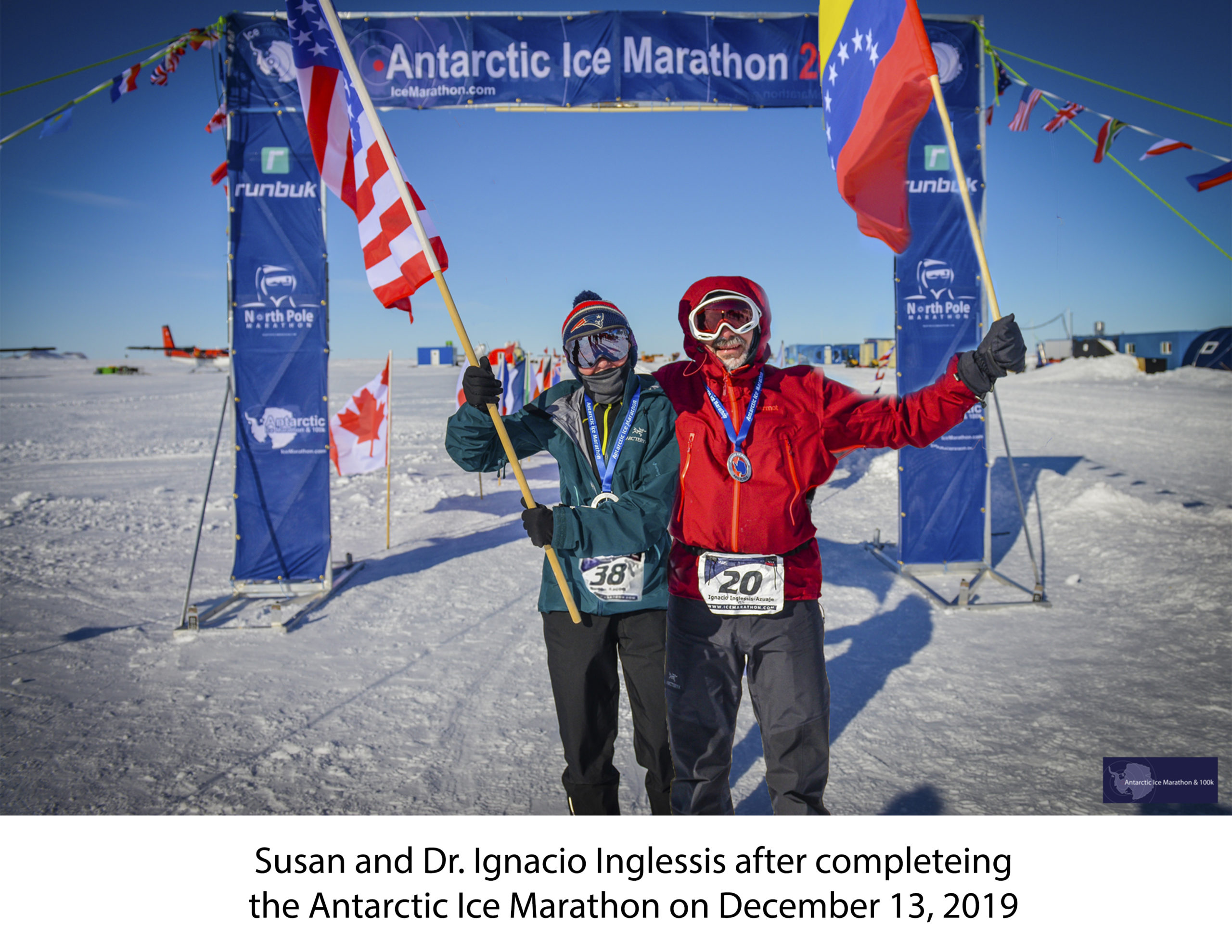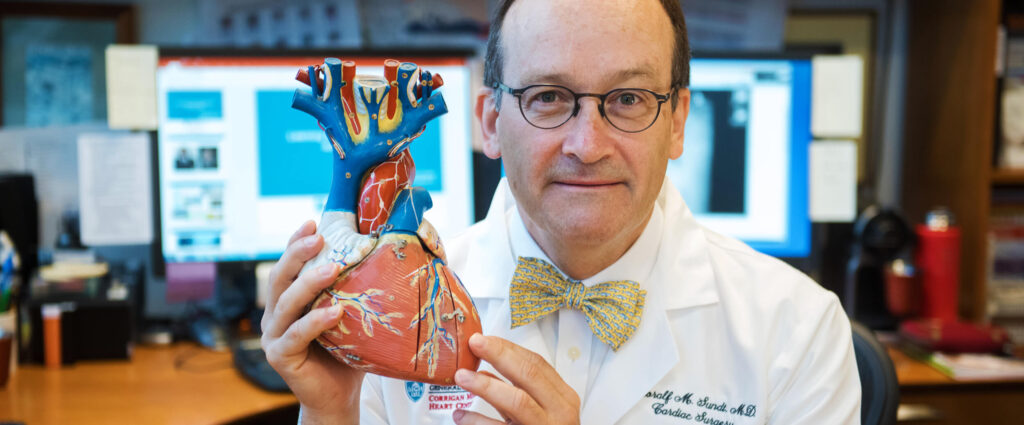Like many who run the Boston Marathon®, Susan Ragon knew that if she were going to hit a wall, it would probably be at Heartbreak Hill — the notorious uphill stretch at mile 18 in Newton, Massachusetts. That was the place where she was most likely to struggle, where her breathing would be at its heaviest and most labored — sometimes getting loud enough that fellow runners would comment.
“I never paid any attention,” says Susan. “I thought, well, it’s not just me — everyone is having trouble breathing at this point in the race, aren’t they?” But what she didn’t know was that the shortness of breath she was experiencing was the result of something more than athletic exertion.
In late summer 2006, a routine examination at Massachusetts General Hospital revealed a startling discovery: Susan, who, at 56, had recently completed her eleventh Boston Marathon (and fifteenth overall) — had been running with an undiagnosed heart defect. The defect — a hole between the upper chambers of her heart — was allowing the right chambers of the heart to overfill with blood, enlarging the heart and increasing pressure in the lungs.
“It was a surprising find in the heart of an athlete, especially one of her age,” says Ignacio Inglessis-Azuaje, MD, director of the Structural Heart Disease Program at Mass General. “It’s a testament to her resilience and her strength that she was completing marathons, but a condition like that can lead to heart failure.”
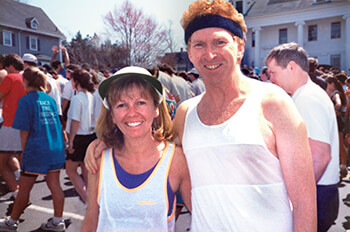
A dedicated philanthropist, Susan and her husband Terry are best known for catalyzing new discoveries in immunology through the establishment of the Ragon Institute of Massachusetts General Hospital (MGH), MIT and Harvard in 2008. The Institute, which is dedicated to accelerating the discovery of an HIV/AIDS vaccine, has gone on to establish itself as a world leader in the study of infectious diseases such as COVID-19. While her philanthropic ventures were important to Susan, her true passion was running.
“I got into this sport because Terry was a runner when we first started dating,” Susan says. “I started out riding a bike next to him, then I decided that an even better way to bond would be to run with him. That was how it all began. Running gives me so much joy. I just didn’t want to give that up.”
The Heart of a Runner
In the fall of 2006, Susan’s care team planned a cardiac catheterization procedure, in which a small clam-shaped device would be inserted into her heart to close the hole. Dr. Inglessis, who would oversee the procedure, was cautious in his approach. “Running a marathon puts an incredible amount of strain on the heart, and at that point in time, I hadn’t treated many marathoners with heart defects,” Dr. Inglessis says. “It was an unusual situation, and I wasn’t certain she could return to run marathons safely, even after successfully repairing the defect.”
“He told me it was time to hang up my shoes,” she says. “But I wasn’t ready to do that.”
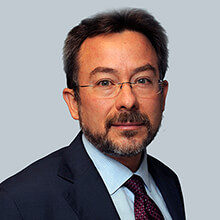
So, before the surgery, the two agreed on a recovery plan that would allow for a gradual return to running. In addition to regular follow-up appointments, Susan would undergo periodic testing with Aaron Baggish, MD, and the team in Mass General’s Cardiovascular Performance Center before heading out for another race. “Dr Baggish’s expertise was instrumental in reassuring everyone that it was safe for Susan to return to running,” says Dr. Inglessis.
Susan underwent the cardiac catheterization procedure in December 2006 and within weeks of surgery, her heart had returned to its normal size. Soon after, the care team gave her the green light to begin training. In October of 2007, less than a year after her surgery, she ran the Dublin Marathon, finishing in less than four hours — and setting a personal record.
“As my patient, I was so happy for her,” Dr. Inglessis says. “But as a physician, I had a new understanding. She showed me it was possible to return to high-level athletics after having a heart procedure.”
The following spring, Susan returned to run the Boston Marathon. And, this time, she had a new running partner — Dr. Inglessis.
Joining Team Susan
Early in her recovery process, Susan issued Dr. Inglessis a challenge: “I said, ‘if you’re so worried about me running a marathon, how about you run one with me?’”
Intrigued, Dr. Inglessis, who had never been more than a casual runner, agreed — becoming the newest member of an informal band of runners known as “Team Susan.” Susan helped him set up a training regimen, and, over the next few months, she became something of a mentor.
“Through all the training and anxiety, she was there every step of the way,” says Dr. Inglessis, who has now run five marathons. “She has been one of the most influential patients in my life. Not only did she help me improve my practice, but she has also been instrumental in my own personal health and athletic career.”
In the years since her heart surgery, Susan has faced other health challenges, including stress fractures of the hip and foot, and breast cancer — and, in each instance, she has found new opportunities to share her passion for running with her Mass General caregivers, often offering to sponsor them for marathons.
“She sees every challenge as a chance to grow Team Susan,” says Ben Crocker, MD, Susan’s former primary care physician and the former Medical Director of the Ambulatory Practice of the Future at Mass General. Dr. Crocker, who has run two marathons with Susan, says “her passion, energy and spirit are so infectious. She rallies her providers as much as we rally her.”
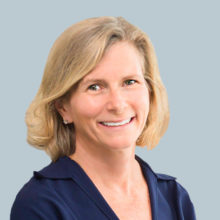
In 2020, Susan’s surgical oncologist Michelle Specht, MD, and anesthesiologist Celeste Day, CRNA, ran the Boston Marathon virtually as part of Team Susan. And at the 2021 Boston Marathon in September, the head of Susan’s oncology team — Steven Isakoff, MD, PhD, associate director of clinical research for the Mass General Cancer Center — surprised her at mile 23.
“I was in tears to see him on the course,” she says.
“Her determination is incredible,” says Mass General endocrinologist Joel Finkelstein, MD, who treated Susan’s stress fractures in 2014. “From the moment I met her, one thing was clear; running was a crucial part of how she defined herself. She helped to teach me the importance of seeing a problem through the patient’s eyes and that compromise is often essential to maximize the chance of having a mutually acceptable result.”
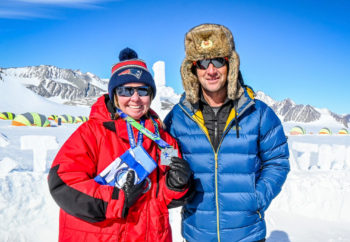
The Road Ahead
At 71, Susan shows no signs of slowing down. To date, she has completed 42 marathons, including all six majors — Tokyo, Boston, London, Berlin, Chicago and New York. She is one of only 136 people to have run a marathon on all seven continents. And, in 2019, she entered the Guinness Book of World Records as the oldest woman to have completed the Antarctic Marathon. She’s now in training to run her 23rd Boston Marathon on April 18, where she will be surrounded by her friends, former caregivers and fellow runners on Team Susan. And Heartbreak Hill? These days, she takes it in her stride.
“I’m not as fast as I used to be, but I know I have more to give,” Susan says. “And as long as I have Mass General behind me, I know I can keep going. We’ve got each other.”
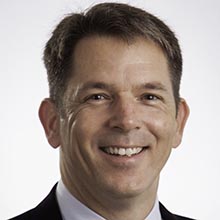
“Beyond Mrs. Ragon’s incredible humility, kindness, and sheer drive to overcome, what I’ve grown to respect most about her is the genuine commitment she has to appreciating all those around her. She always goes out of her way to acknowledge every member of our staff and team, and make them feel valued,” says Christopher DiGiovanni, MD, Chief of Mass General’s Foot & Ankle Service. In 2016, Dr. DiGiovanni repaired a stress fracture and reconstructed the arch of Susan’s right foot.
“I’m proud of every person at Mass General,” she says. “It’s not just the doctors — but everyone. The people in X-ray. It’s the people who bandage you, draw blood and walk you to your car when you leave. They have all been there for me, and I’m glad I can be there for them.”
